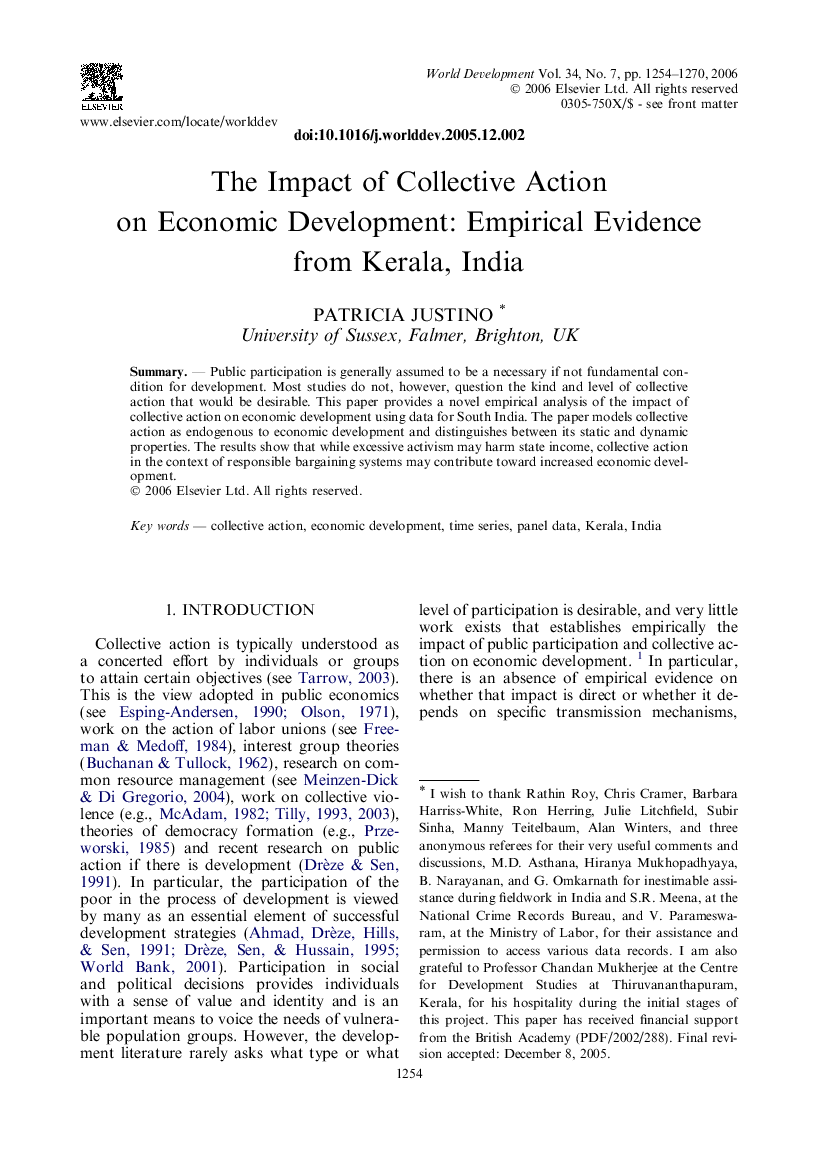| Article ID | Journal | Published Year | Pages | File Type |
|---|---|---|---|---|
| 992590 | World Development | 2006 | 17 Pages |
Abstract
SummaryPublic participation is generally assumed to be a necessary if not fundamental condition for development. Most studies do not, however, question the kind and level of collective action that would be desirable. This paper provides a novel empirical analysis of the impact of collective action on economic development using data for South India. The paper models collective action as endogenous to economic development and distinguishes between its static and dynamic properties. The results show that while excessive activism may harm state income, collective action in the context of responsible bargaining systems may contribute toward increased economic development.
Related Topics
Social Sciences and Humanities
Economics, Econometrics and Finance
Economics and Econometrics
Authors
Patricia Justino,
